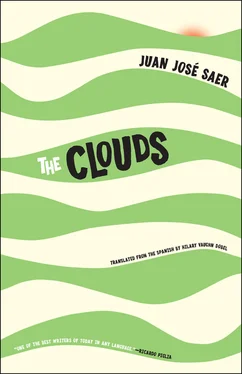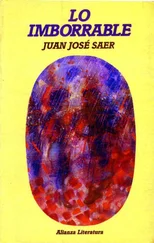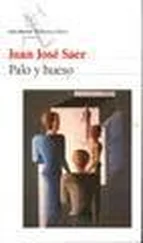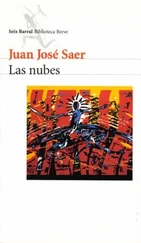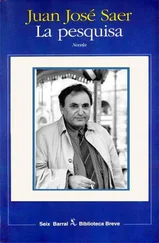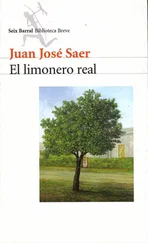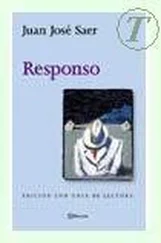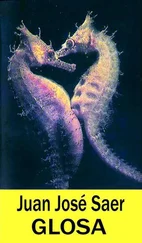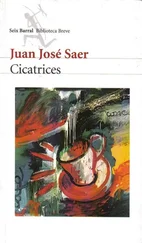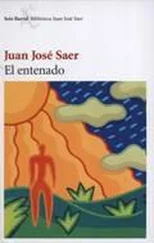Aside from those two letters, which are with me even today, the little news that managed to enter the city had a common feature: All of it was bad. The north and west, from which my patients ought to have finally appeared, if they were to appear at all, suffered only two or three ills — the rain, the cold, and the flood — but in the south, that is, in the direction we would travel as soon as we were ready, there was an additional scourge: Chief Josesito. With each new messenger his band’s latest outrages were relayed to us in painful detail — never leaving out the inevitable violin concert over the human remains and tortured corpses. Hearing these stories, Osuna would wrinkle his forehead and suck deeply and more frequently at his cigar, biting it harder than usual. A few days passed before he would explain, at my insistence, of course, the cause of his restlessness: Because of the flood, the whole line of outposts between Paraguay and Buenos Aires had vanished; not only the Paraná, but all its tributaries had overflowed, so the lands were flooded well out to the west, which would force us to make a sizable detour northwest across open country before bearing south — or perhaps we would need to travel through high desert where there were neither outposts nor roads, and precisely where Chief Josesito was ensconced with his band of savage Indians. The bravery and expertise to lead us through open country were left to Osuna, whose brow furrowed not in fear, but rather in a professional and anticipatory concern, simultaneously considering how possibly to negotiate the obstacles on the road, of which Chief Josesito seemed to be the foremost. So it was that one morning, two or three days after our conversation, he declared that he was leaving to explore the surrounding area to see what turned up, and disappeared for a week. When he returned, the outlook was certainly not reassuring, but was more accurate than before he had left.
He had ridden first to the north until he met the covered wagons down from Paraguay. They were delayed but would arrive, by Osuna’s calculations some five days hence, barring an accident. Osuna then handed me a letter from a colleague of mine in Asunción, informing me of the presence of an additional patient in the caravan. The caravan’s leader was to give me a sum of money to cover the cost of admission at Casa de Salud for one year. Osuna also told me of the covered wagons intended for the other patients; they were sufficient in number and everything seemed to be in order. He had also gone to meet the people coming from Córdoba. They were proceeding much faster because they traveled on horseback, but had been late to strike out from the city, though Osuna was ignorant as to the reasons why. They did not, however, seem to have a patient among them. It is true that their meeting was hasty, for Osuna had been heading south to acquire better information about Josesito. He had been unable to converse with them in greater detail, but they presented themselves as a small group of riders, traveling through the desert, careless and free, and whose leader, who looked to be a rich and magisterial man, but who had made some jokes about Osuna that the other riders greeted with laughter, had wanted to give him a few coins for the pains this man supposed Osuna had taken to come meet him. Osuna had turned them down and galloped to the south. It was plain to see that despite the offhand air he adopted while telling me this, Osuna had been annoyed and even a little humiliated by the horsemen’s disconcerting breach of tact. And finally, passing into the south, he’d made inquiries about the movements of the chief and his band, and not only had he heard various testimonies, but had even glimpsed signs of a recent massacre: a pair of charred wagons, bones recently picked clean by tigers, caracaras, and ants. Such was the news Osuna brought me from his seven-days’ ride.
In the nearly two months I stayed in the city, the cold relented slightly for just a few days to pass through a stormy corridor, from pale glacial weather, dry and sunny, to gray winter, biting and rainy. Day’s brief hours passed in a wan half-light, and all the way out to the horizon, under a dark sky, everything one saw had a dull sheen, soaked through. On riverside streets, one could walk in the rain because the water had hardened the sandy ground, but in the western part of the city opposite the coast, a thin mud had stirred up, sticking to our boots, making it hard to walk; and one morning on a street in the outskirts, I saw a horse slip over and over, more precarious each time it tried to right itself, until it made a resounding flop on its side into the red and runny clay and remained there twitching its legs in the air to no avail while emitting strange noises — whinnies or wails — from either its throat or nose, though I could not tell which. At night, I could hear the rain, dripping thick and constant, or scattered and faltering as it abated, the sound reaching not only into my surroundings, but also to the vast night I imagined, spanning all the universe, so black and cold it seemed to come from beyond thought and sense, from a sudden place over and above the very space it pervaded.
One morning, two or three days after Osuna’s return, Señor Parra came knocking at my bedroom door very early and in person: A man just in from Córdoba last night wished urgently to speak with me. According to Señor Parra, he seemed an important person by his manner of dress and — this he said in a bit of a huff, lowering his voice — was probably used to giving orders. From Señor Parra’s tone, I knew the visitor had offended him in some way and remembered the story Osuna had told me about the horsemen, so I rushed to dress, as Señor Parra, who was usually affable and tolerant, seemed to have grown impatient with the visitor and would rather I received him as soon as possible. I looked to him gratefully, trying to make it clear how I regretted the disruptions that my stay in his house had caused, and invited him to enter; as I finished dressing, I inquired further about the character who had come so brazenly to take me from my bed at such an early hour on that dreary morning. Señor Parra put aside his pride and stoically overcame his ill temper, replying that when the servant came to announce the guest, seeming most impressed by this character, he had gone down to receive him personally at the front door. The visitor was dressed, said Señor Parra, with a meticulous elegance for that early hour and for that untenable weather, straight and stout and quite sure of himself, with a book in hand and his index finger between pages so as not to forget where he was reading; he had to admit, said Señor Parra, that the visitor left an immediate and forceful impression. He attributed the man’s rather haughty manner to the shyness sometimes caused by strangers, producing a temporary arrogance that expresses less a suspicion of others than of oneself. Since he asked to speak urgently with Dr. Real — he had to consult him about a matter of the utmost importance — Señor Parra took him to his library at once, and, with an attitude that might have seemed discourteous, the visitor paid him no mind and began to examine the collection, now and then making assorted little sounds, which were difficult to interpret as approving or disapproving, and nodding his head, affirmatively for a second and then negatively or doubtfully. He was surely a man of science and, though his conduct may have been a bit indelicate, up to that point he had not actually given offense. However, when the visitor noticed the bust of Voltaire, he shook his head like a doctor at an incurable patient and, with a sarcastic chuckle, he let slip — involuntarily but with the rudest and most contemptuous of tones — the word scoundrel . That had been too much for Señor Parra to endure, and, announcing to his visitor that he was going to look for me, he had come knocking at my door.
Читать дальше
